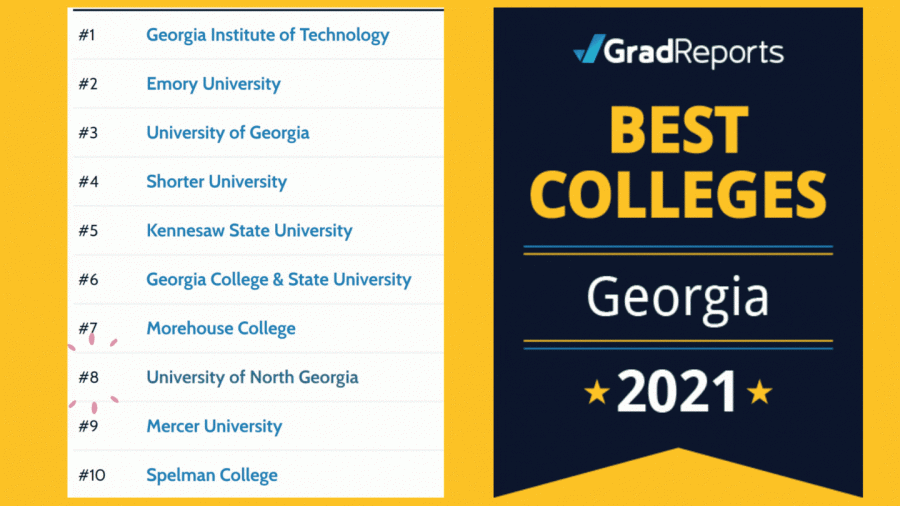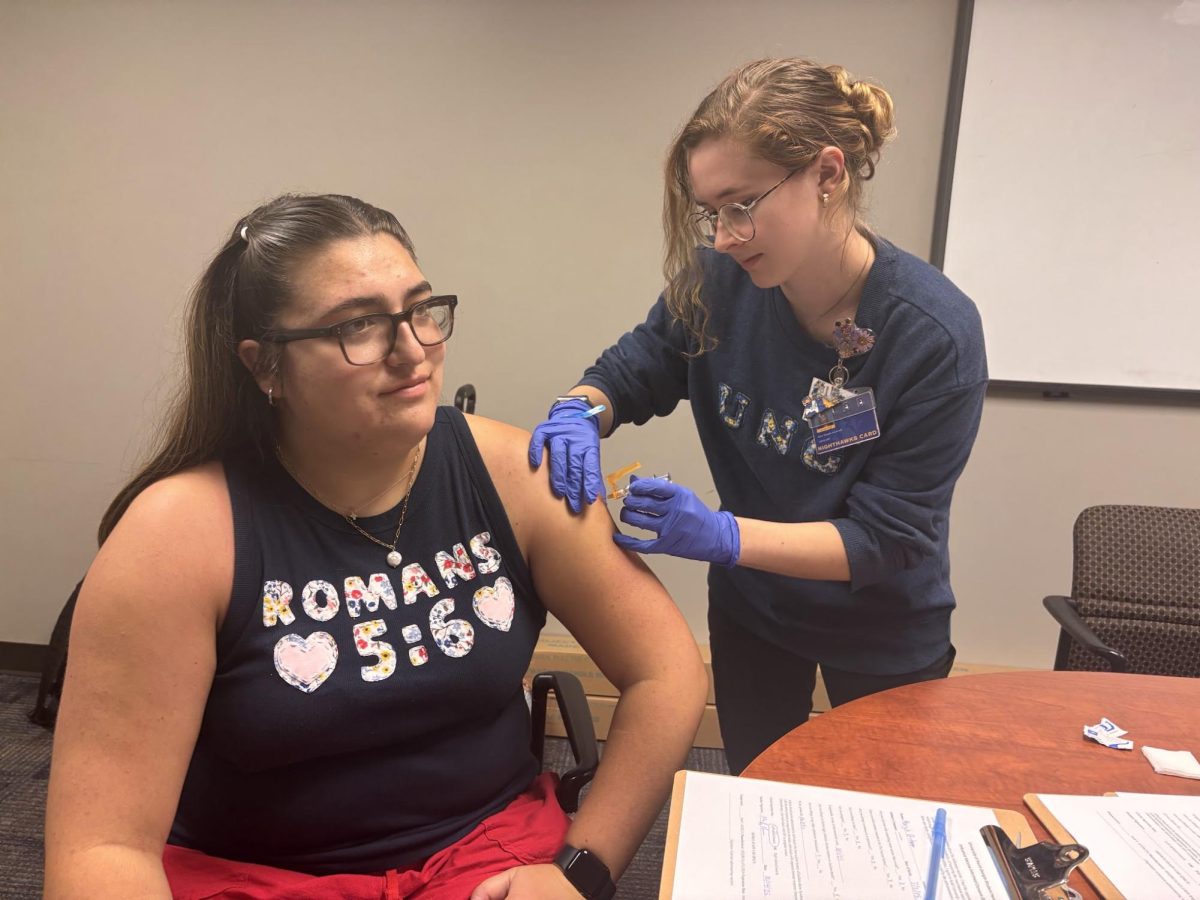In a recent press release, UNG has made the top ten as one of the best colleges in the state of Georgia. According to Sarah Glass, an outreach specialist with GradReports, UNG holds the eighth position in the ranks as of March 1, 2021.
To see how UNG measures up check out the full list on GradReports. Glass said, “We recently published our 2021 Best College rankings, based on median early-career salary data of over 4.6 million graduates from the U.S. Department of Education’s resource, College Scorecard.”
“We work very hard to ensure that UNG provides an exceptional student experience and high-quality programs, and I am pleased that this ranking, like many others, places UNG among the top institutions in the state.” Dr. Bonita Jacobs
Due to COVID-19, GradReports felt it was crucial for not only prospective and current students to see what they are likely to earn after graduation. Thanks to Optimal’s GradReports system, students are able to see the data for their expected salaries after college and use the statistics to their advantage.
“This past year has created an atmosphere of enormous financial strain and uncertainty and now more than ever, students and their families are in need of data that demonstrates earnings outcomes, giving them the ability to plan for the future and also feel confident in their decisions.”-Optimal CEO, Sung Rhee
UNG has the lowest tuition rate on the list and its Salary Score is 48.29 based on the median alumni earnings one year after graduation. Students of every degree program are included in this calculation. The top five Georgia institutions beat the national median salary score of 50.
According to Dr. Bonita Jacobs, president of UNG, had important comments regarding the GradReports median salary ranking. She said, “it should be noted that this particular ranking is based on earnings in the first year after graduating, and earnings can increase significantly over the span of a career.”
Jacobs cautions students not to focus too much on UNG’s comparison to other institutions with different academic programs.
“Students who graduate with a degree in engineering fields and similar specializations typically demand high salaries; thus, those institutions that graduate high numbers of students in specialized areas will rank higher than other institutions on this particular ranking,” said Jacobs.
Jacobs also said that this ranking, “underscores the educational return on investment our graduates realize.” According to UNG’s Bachelor Degree Student Data, outcomes from 2018-2019, 59% of graduates were employed full-time with the career outcome rate being 85%.
Employment rates for each bachelor degree program are above 91%. Therefore, comparing UNG to the Georgia Institute of Technology is not a fair comparison because of the specialization differences between graduates, as Jacobs said.
Rhee said, “Quite a few surprising, lesser-known colleges appear high on our rankings as well, illustrating that it’s not always the most recognized, exclusive or expensive schools that will deliver the best financial outcome.”
Rhee emphasized that it is important that our rankings convey the message that traditional expectations do not always match reality.
Although the past year has been all but easy, students and faculty are motivated to succeed. Nighthawks who work together win together.



































